 Chapter 1: Prevention and Preparedness Phase
Chapter 1: Prevention and Preparedness Phase
Since December 2019, news of an outbreak of unknown pneumonia in Chinese Mainland began to spread, kicking off the years-long battle against the epidemic. During this fight, Hong Kong citizens, the government, health care professionals and different institutions had their own roles and had taken respective actions since the prevention and preparedness phase.
In order to reduce the mortality and morbidity of the infectious disease, the government announced the Preparedness and Response Plan For Novel Infectious Disease of Public Health Significance on 4 January 2020[1], so that the government departments and related organizations could take actions and coordinate with each other according to the mechanism. At the same time, the public was informed of the risk level. Various companies could hence take it as a reference and formulate their own contingency plans. With the development of epidemic situation in Chinese Mainland and Hong Kong, the government activated the Serious Response Level and Emergency Response Level successively within one month, and implemented a range of prevention and preparedness measures[2][3][4][5]. In response to the government's adjustment, the Hospital Authority (HA) also executed corresponding emergency response arrangements to strengthen infection control. Meanwhile, many citizens, enterprises and voluntary groups took the initiative to prevent the spread of the disease[6][7][8][9][10][11][12].
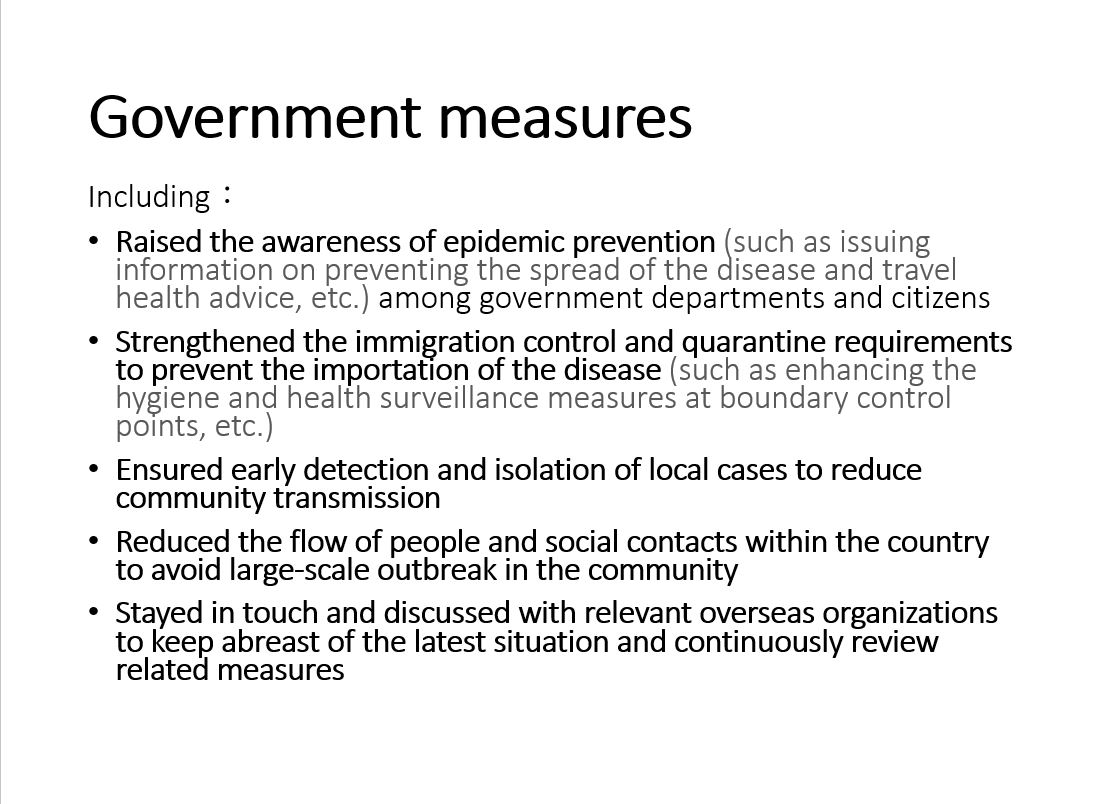
Government measures
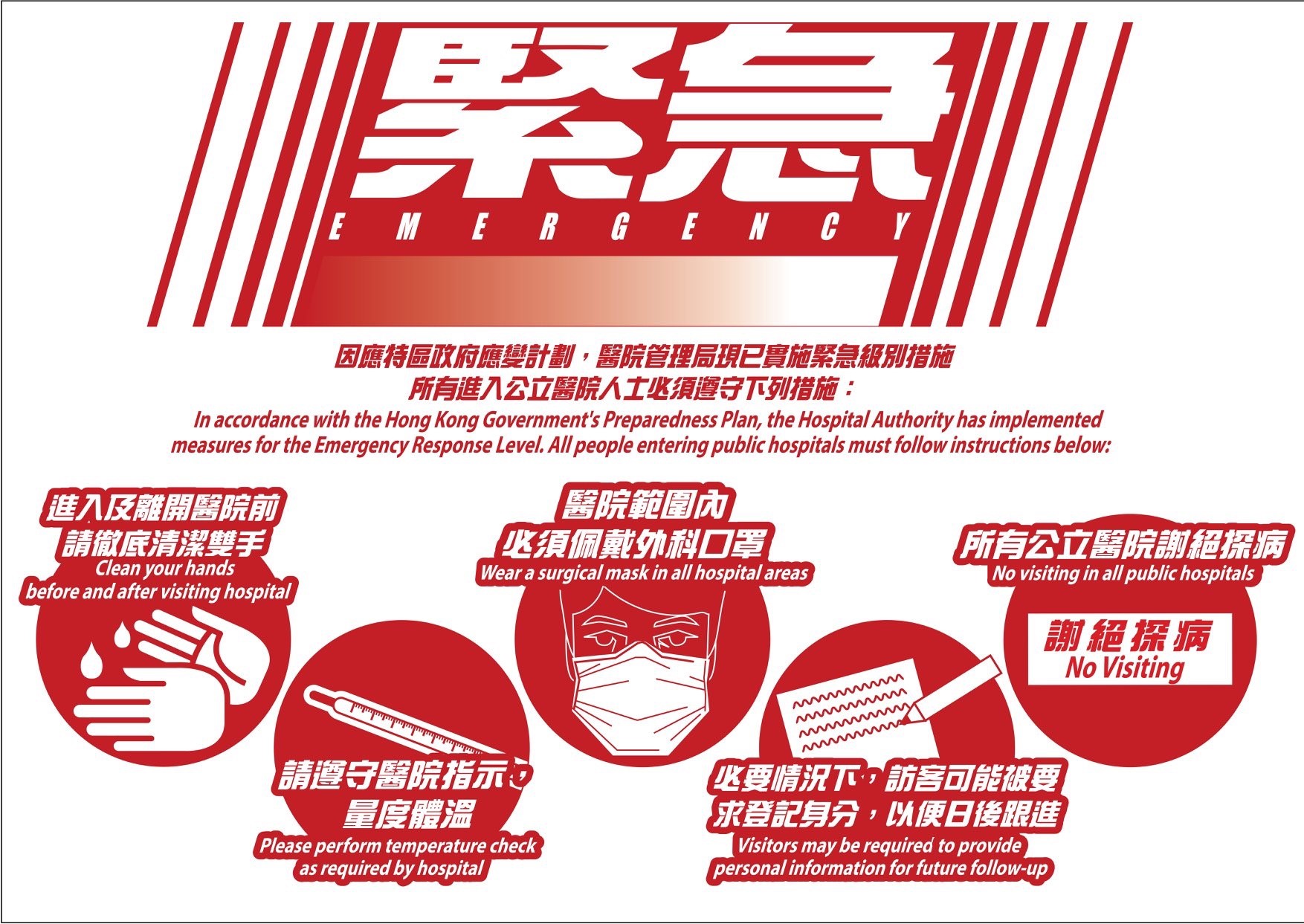
HA measures
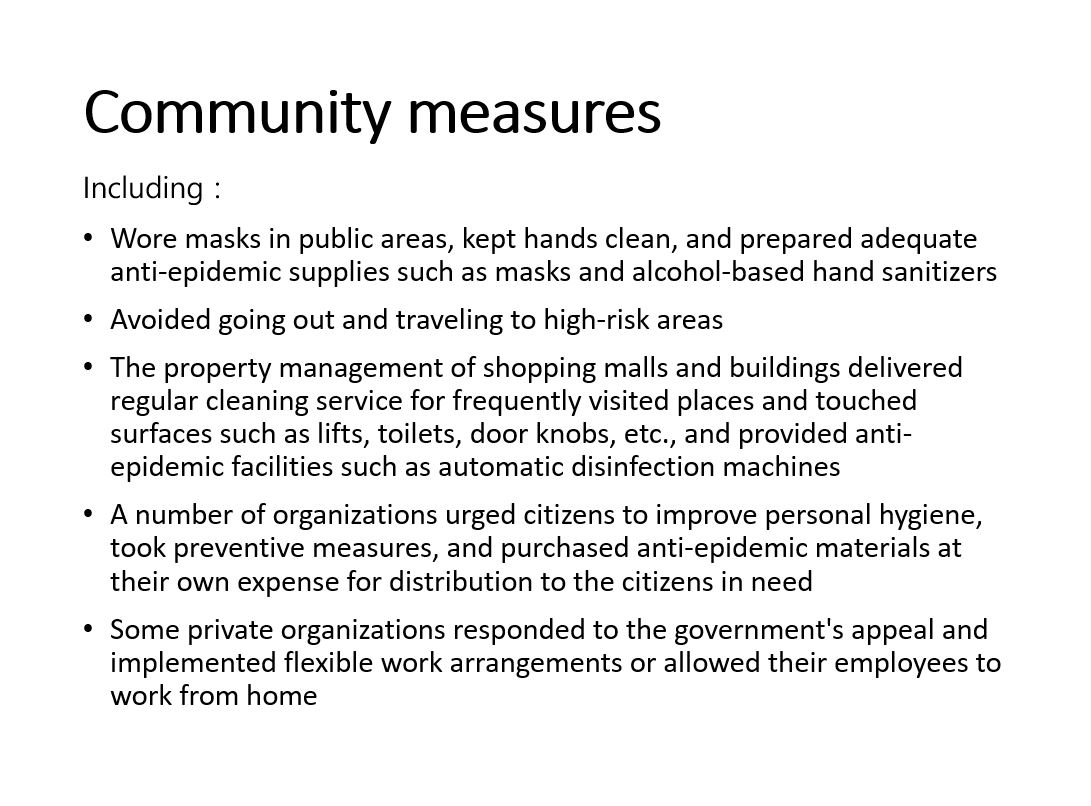
Community measures
Lessons learned
While there were different opinions on the implementation of the prevention policies[9][11][13][14], it is worth noting that the effectiveness of disease prevention and infection control depends not only on the government's early intervention, but also on the public's risk perception and behavioural response[7]. In Hong Kong, many citizens had experienced the trauma brought by SARS, and hence had greater crisis awareness when they heard the news of the disease outbreak. Different groups also voluntarily offered anti-epidemic materials, enhanced environmental cleaning and disinfection, and raised public awareness of the epidemic. These response measures acted like the immune system of the city. Although they could not prevent the virus from entering Hong Kong eventually, they greatly reduced the speed and scope of the outbreak, which was particularly important in the early stage of disease prevention and infection control before the launch of relevant vaccines and medical treatments[7].
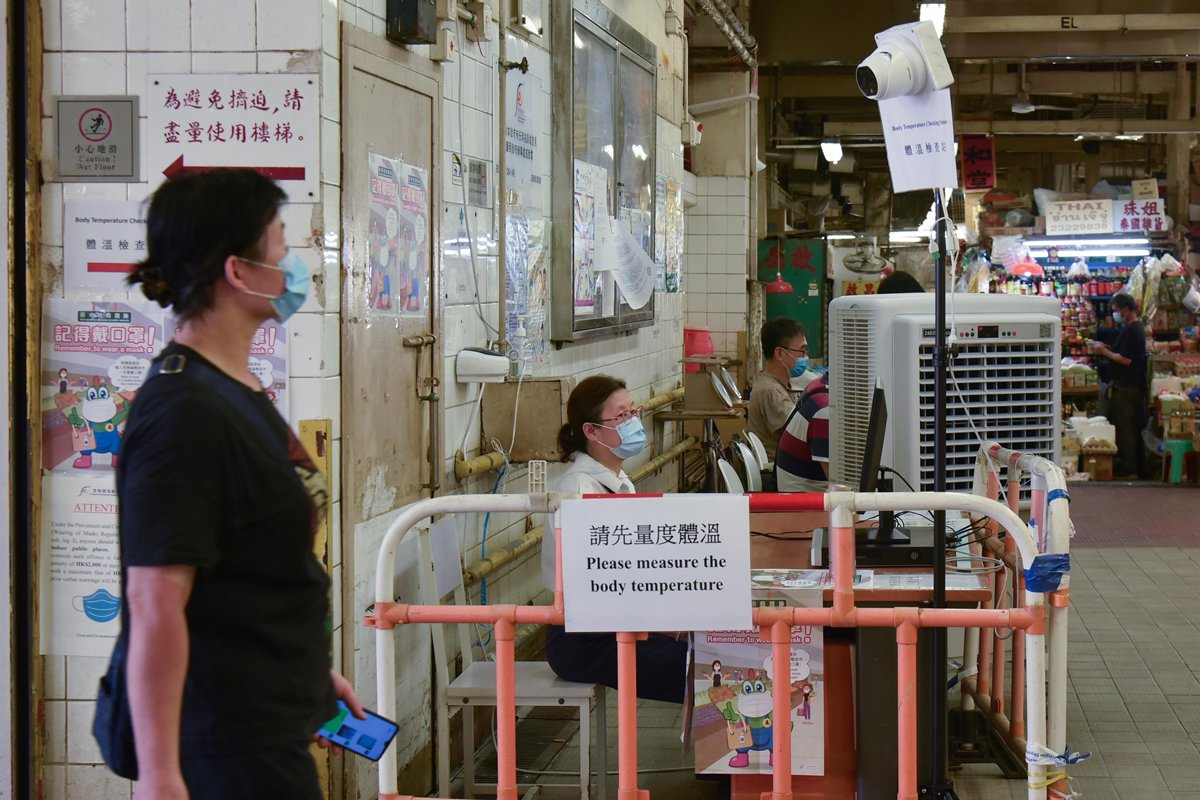
People are wearing masks in public area.
Source: News.Gov.com https://www.info.gov.hk/gia/general/202008/01/P2020073101016.htm
On the other hand, such "immune response" may bring about other problems, such as the "panic buying" incident in the early stage of the epidemic. You can read the following sharing to learn more about the psychological reactions that may arise in the face of a disease outbreak.
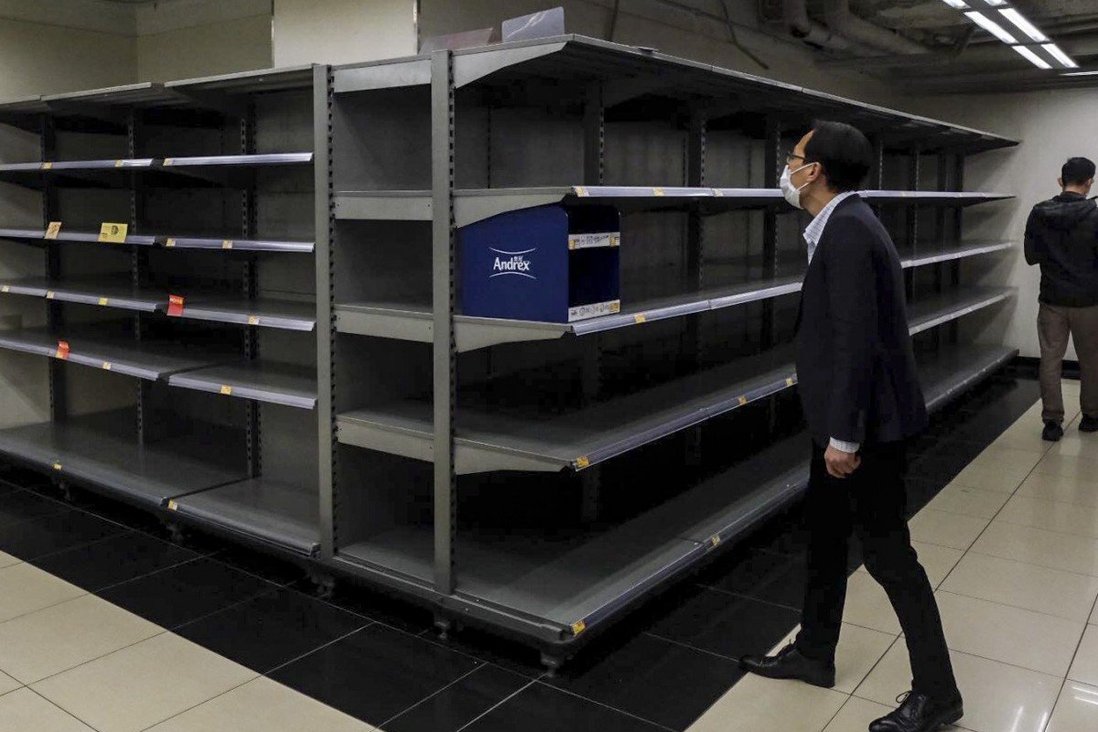
Shoppers were met with empty shelves in supermarkets across Hong Kong
At the beginning of the epidemic, numerous citizens dashed around and stocked up on various anti-epidemic supplies. Therefore, the phrase of "Two boxes (of masks), THX!" was widely circulated on social platforms. After that, other daily necessities also became the target of stockpiling, and there were even issues of "robbery of toilet paper"[15][16]. Apart from Hong Kong, similar cases of panic buying occurred around the world[17]. In the psychological perspective, how this phenomenon can be interpreted?
According to the literature[18], there are three psychological factors behind panic buying that might interact with one another: (1) fear of the unknown; (2) risk perception; (3) social psychological factors:
Emotions can be regarded as part of our survival instinct. In the face of unknown threats, it is natural for us to feel afraid, uncertain, anxious or helpless.(check out What are the impacts of disaster for psychological reactions we may experience after a disaster). In fact, these emotions serve an important function, driving us to prepare for danger and to protect ourselves and those around us. We would hence try our best to prepare all the daily necessities we need and put an emphasis on disease prevention to regain the sense of control and security[19].
However, the water that bears the boat might also be the same that swallows it up. Some scholars pointed out that excessive emotional reactions might affect our risk perception, induce overreaction to the crisis we are facing, and drive us to take extreme actions[20].
The effectiveness of the prevention and control of disease depends greatly on the public’s risk perception: the more we emphasize the threat of the disease, the more motivated we will be to take self-protection measures, including stocking up on necessities in advance to avoid going out and to get through the crisis. However, in the age of information overload, it may be difficult for us to separate truth from fiction, which affects our judgment on the situation. Moreover, with our instinct of risk aversion, we tend to pay more attention to the negative information and danger, while ignoring the relatively neutral information or the news that indicates safety, thus leading to negativity bias. Therefore, believing that it is better safe than sorry, some people would join in panic buying.
Some people might not really think that the materials would be out of stock for a long time, but when people around them started piling up items, they might join in due to herd mentality[19]. Herd mentality manifests the phenomenon of bandwagon effect in social psychology—human beings, as social animals, tend to imitate the behaviour of others and follow the actions of the masses. Studies revealed that this tendency of "following the crowd" may lead us to abandon our original decisions that have been made based on existing information and beliefs[21]. In addition, scholars found that sense of trust may influence people’s behaviours[18][19]: the less confident people are in their community, the society and the decision-makers, the more likely they will be to overestimate the level of danger.
To better cope with the epidemic, it is natural and reasonable for us to prepare an appropriate stock of necessities. Nevertheless, when the psychological factors above and social environment intertwine, a chain effect of panic buying may happen(as illustrated in Figure 1). As a result, on a personal level, stocking up on too many unnecessary items takes up much space at home and and leads to waste of resources; while for the community, the empty shelves may cause new panic and intensify panic buying, eventually affecting the material supply[18].

Figure 1:The Knock-On Effect of Panic Buying
Summary
Although "panic buying" may seem ridiculous, it is human nature to find it difficult to stay calm and objective in the face of a sudden situation. After all, it is our instinct to protect ourselves and our family members through staying alert to disasters and responding quickly. It is hoped that the above sharing can help you understand more about disaster psychology. By enhancing self-awareness of the emotional responses and balancing the pros and cons, we may find a more appropriate approach to deal with the crisis.(see Psychological Preparedness for more information)
1. Calm down
Pay attention to your emotions, calm yourself down (such as taking deep breaths), and try not to panic.
2. Fact-check first
Analyze and filter the information you have receive rationally, and transmit the information responsibly by verifying whether the source is reliable and credible before sharing and forwarding.
3. Plan ahead
Get prepared in advance, such as discussing contingency plans with your family members, and getting enough daily necessities and anti-epidemic materials for short-term use at home. Then, when a crisis strikes, you can face it more calmly. (check out our Preparedness: Infectious Disease)
4. Support others
Remind yourself that disease prevention requires the participation of the entire community, and try caring for and supporting your family, friends, neighbours and the needy in the community.
[7] Community responses during early phase of COVID-19 epidemic, Hong Kong. Emerging infectious diseases. (Kwok, K. O., Li, K. K., Chan, H. H. H., Yi, Y. Y., Tang, A., Wei, W. I., & Wong, S. Y. S., 2020)